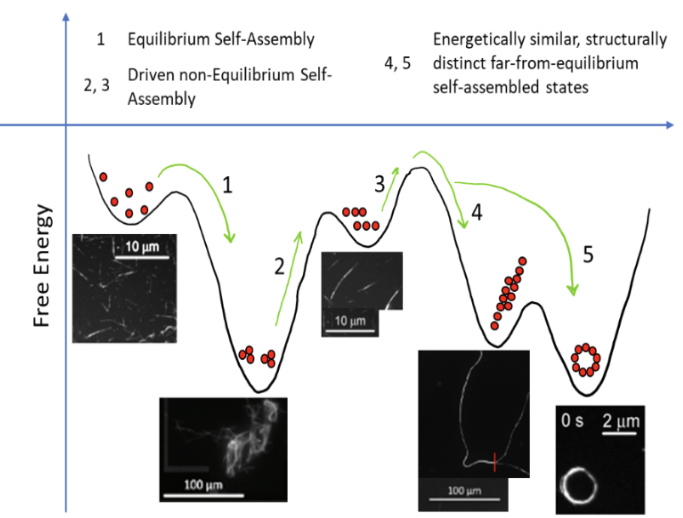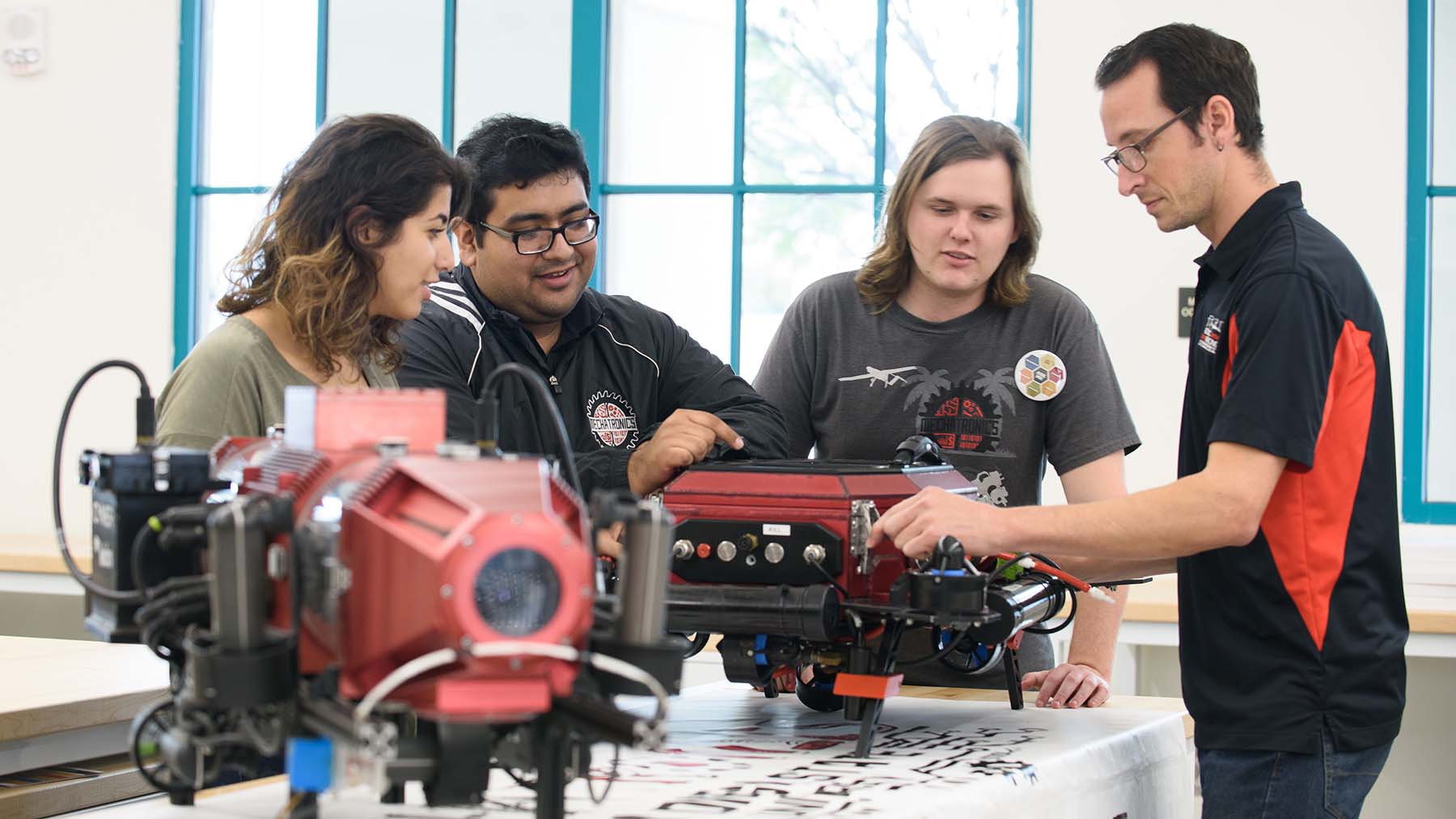Dr. Katira leads a $1.4 M effort on Non-Equilibrium Self-assembly funded by the Army Research Office
Dr. Parag Katira, Associate Professor of Mechanical Engineering, is the Lead PI on a $1.4M project
funded by the Materials Design Program at the Army Research Office of the Department of Defense to
study self-assembly of matter into non-equilibrium structures and configurations. Dr. George Youssef,
Professor Mechanical Engineering, and Dr. Henry Hess, Professor of Biomedical Engineering at Columbia University, are co-PIs on the project. Self-assembly is a coveted process of bottom-up manufacturing where individual building blocks come together to autonomously form preprogrammed structures. As a manufacturing process, self-assembly can be employed in producing a variety of single and multiphase polymeric materials with controlled structure and function, semi-permeable membranes, LED based display panels, nanoparticles based solar panels, or even DNA based molecular devices and machines. However, all of these applications are based on the self-assembly of building blocks into a limited number of close to equilibrium configurations – configurations that are accessible at standard temperature and pressure. Nature on the other hand has excelled at employing self-assembly to make structures that are both near and far from equilibrium without relying on extreme assembly conditions (after all, all living things are self-assembled from individual molecules). A key component that nature employs to achieve far-from-equilibrium self-assembly are molecular motors that extract ambient chemical and thermal energy to perform work at the nanoscale. The goal of this project is to explore, analyze, and implement strategies to efficiently combine the activity of molecular motors with pre-programmed short- and long-range interactions between building blocks (polymeric fibers or colloids) that would drive their self-assembly into desired non-equilibrium structures and configurations.


